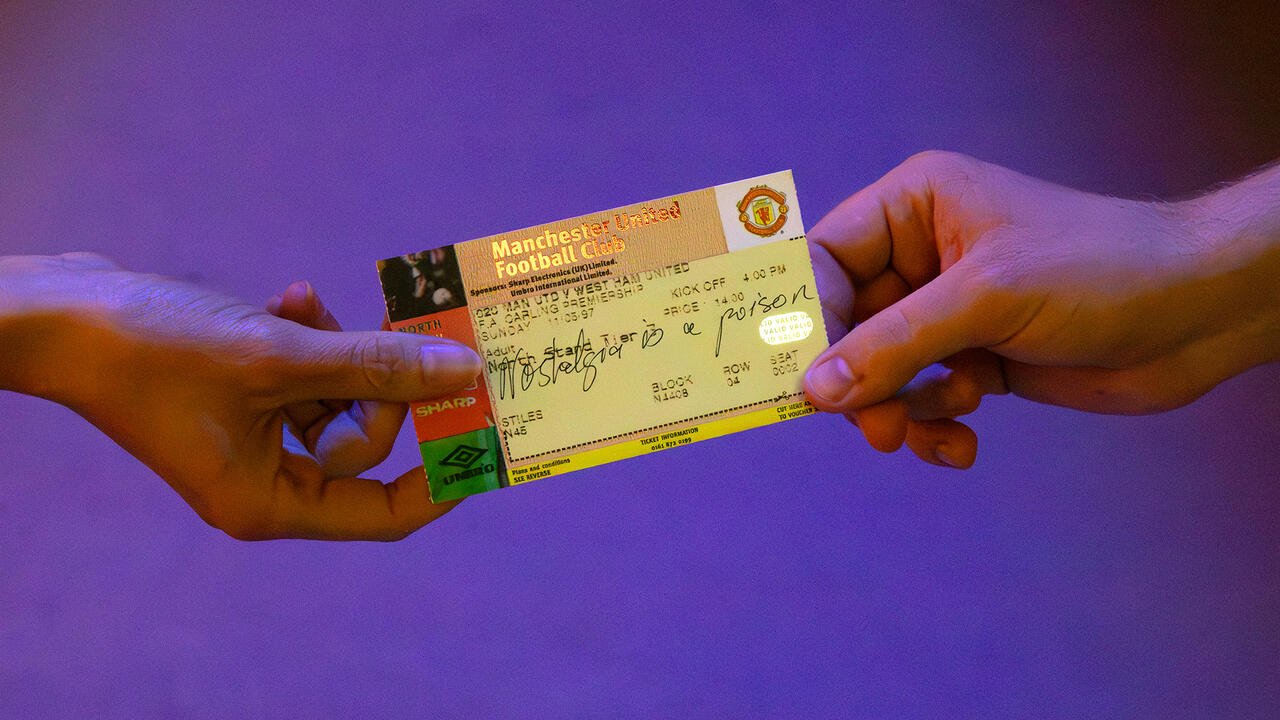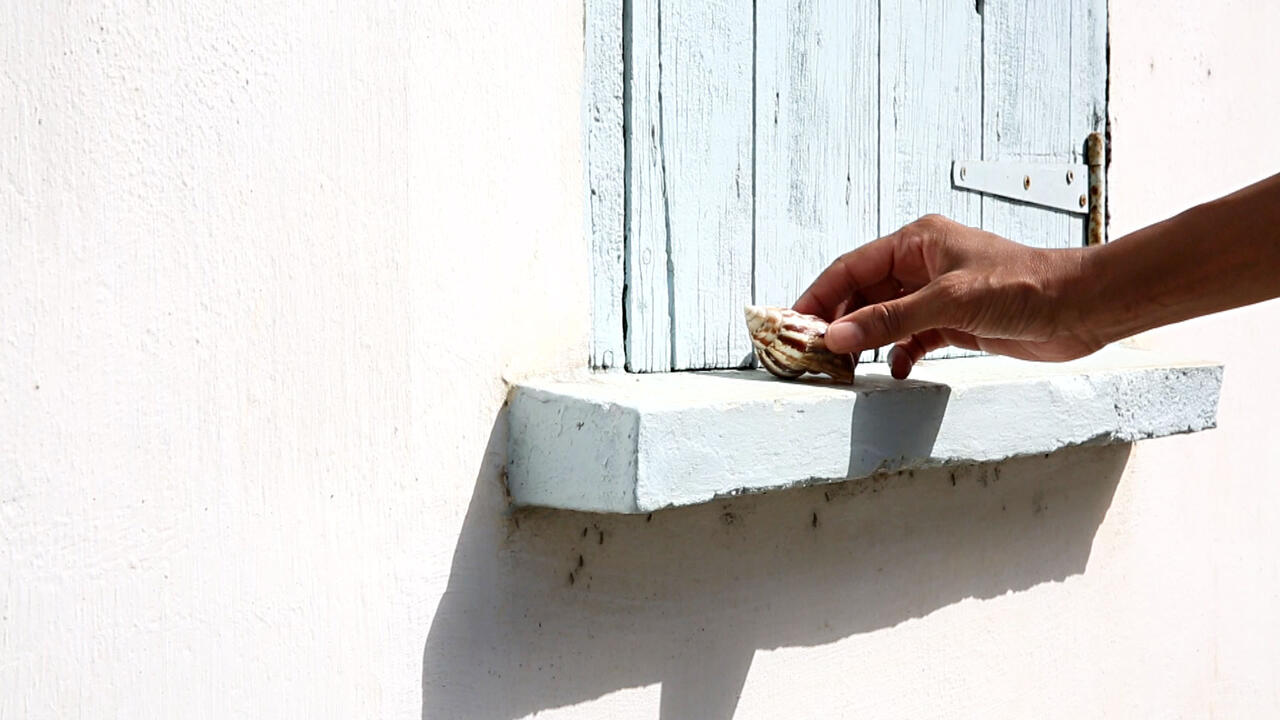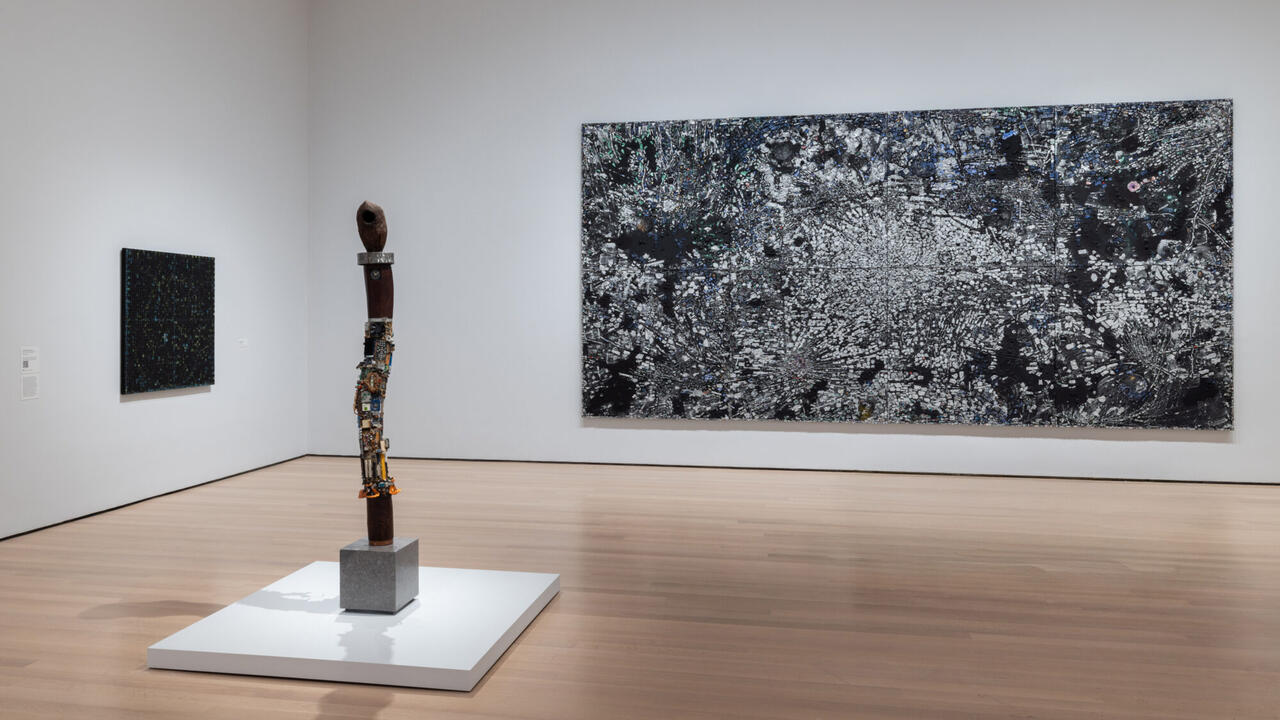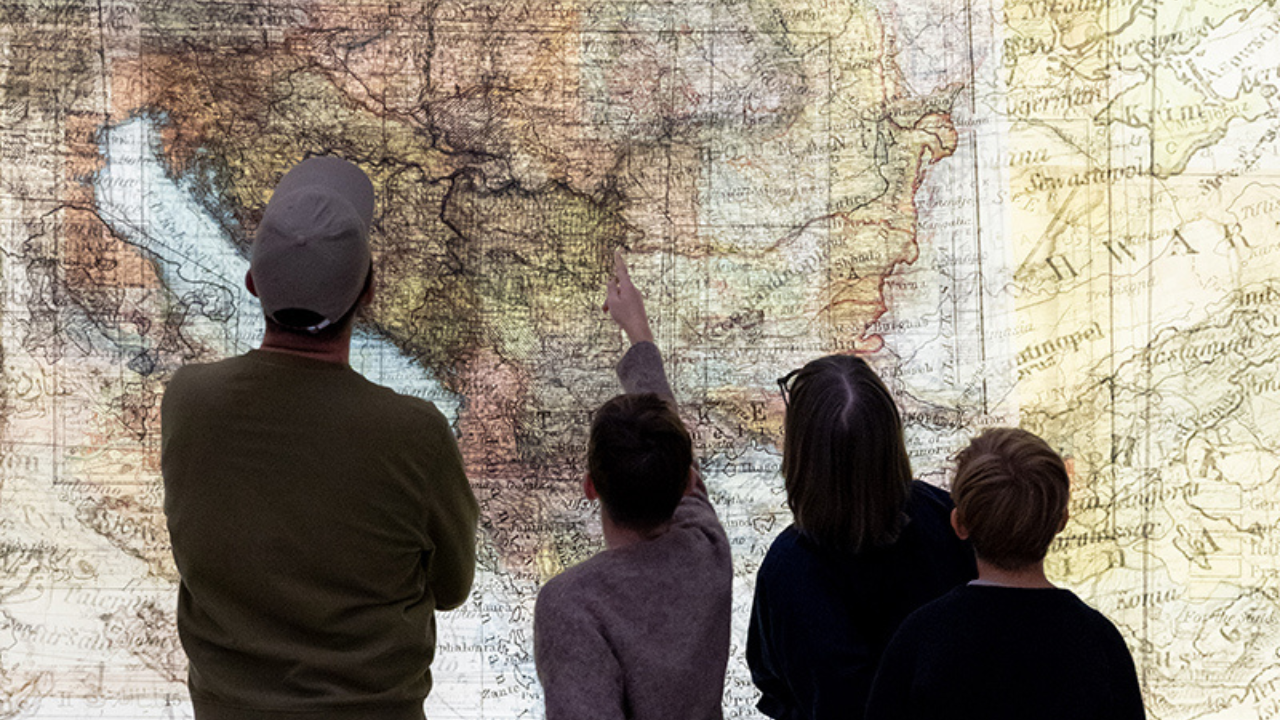Dispatches: London
What might the late Mark Fisher have made of the UK’s General Election? Suddenly the end of ‘capitalist realism’ feels not just possible, but almost inevitable
What might the late Mark Fisher have made of the UK’s General Election? Suddenly the end of ‘capitalist realism’ feels not just possible, but almost inevitable

On the evening of 8 June 2017, I watched the UK General Election coverage in the no.w.here project space – a lab in Bethnal Green, London, founded in 2004 by filmmakers Brad Butler and Noor Afshan Mirza – which combines 16mm production with critical dialogue about image-making, usually with a radical slant. For years, they have fought their landlord to keep their building, seen by property developers as too lucrative to waste on a non-profit, artist-run organization, and who have employed expensive lawyers to argue against its Asset of Community Value status. (They also made no.w.here remove the slogan on their door declaring ‘We live in a utopia – it’s just not ours’.) No.w.here won that case, and recently secured another four years’ Arts Council funding, although their grant has not been increased since their last application, meaning in real terms that it has been cut – especially as their landlords are trying to hike up their rent by 30%.
Mirza told me that they are hoping to shift to a worker-run model, like that of the seminal London Film-Makers’ Co-operative, whose equipment no.w.here inherited after it ended in 2001. LUX, who took on the LFMC’s film collection, left Dalston for Highgate last year, priced out of Zone 2; given the impracticality of moving items such as the rostrum camera, much would be lost if no.w.here also had to relocate. Their resentment at the Conservatives running London purely for the wealthy is expressed in posters around the lab, notably in one by Savage Messiah (Laura Oldfield Ford) stating ‘The only cuts we want to see’ above prominent politicians’ heads on spikes.

When the election was called, the prevailing mood amongst my artist, academic and activist friends had been despair: Jeremy Corbyn’s Labour trailed the Conservatives by 20% in opinion polls, and pundits anticipated a defeat similar to 1983 (when the Tories won a majority of 144) or even 1931 (when Labour lost 225 seats). By polling day, the election was impossible to call, after a miraculous Labour campaign that combined the imagery and emotional affect of 20th century socialism with deft social media use, incorporated counter-culture via #grime4corbyn, and produced a bold manifesto that dared to position austerity as a political choice, rather than necessity. Polls varied wildly: YouGov had the gap down to 1%, but ComRes estimated a 10% Tory lead, with youth turnout as the key variable. Only a handful of commentators – most notably Aaron Bastani of Novara Media – gave Corbyn a chance of wrecking May’s coronation.
The Tories’ campaign had been as anaemic as Labour’s had been brilliant. Strategist Lynton Crosby soon disowned it, although it bore his hallmarks: slurs (often with a racist bent), scaremongering, and catchphrases repeated robotically until they became truisms (a tactic that David Cameron, improbably, drew from The Ramones). These were widely ridiculed: Jeremy Deller plastered cities with posters reading ‘Strong and stable my arse’; meanwhile, we called our party at no.w.here a ‘Coalition of Chaos’ and borrowed art duo kennardphillips’ portrait of Theresa May, starkly entitled ‘Profit’, to promote it. The best détournement, though, was applied to ‘the magic money tree’ – the Tories’ attempt to castigate Labour’s spending plans as fantasy – as Tristan Cross mixed Youtube ranter The Artist Taxi Driver’s anti-austerity diatribe with Skepta’s ‘Shut Down’ to create a striking, sublime stab at governmental greed and hypocrisy that spread rapidly across social networks. Artists, who had constantly seen their budgets slashed, organisations that might promote or fund their work vanish, and the whole concept of creativity rendered irrelevant in a world where only Profit mattered, were having their revenge.

At no.w.here, in the hour before the exit poll results were due, we talked about the effects of austerity on our lives: cuts to education grants and arts funding; the impossibility of finding secure, affordable housing; a sense that our life prospects were being rapidly, deliberately eviscerated. Getting everyone into the project space, where the coverage was being screened, just before the 10pm announcement was not easy – our memories of the 2015 exit poll, which (correctly) called an unexpected Conservative majority were still raw. When it predicted a hung parliament, we were ecstatic: May would be dramatically weakened (having said that losing just six seats would be a disaster ‘for Britain’); Corbyn’s supporters, constantly demonized by the media, would be vindicated; and Britain’s long rightward drift, which had culminated in the previous summer’s Brexit vote, might be reversed. Corbyn may not have won, but he had done far more than avoid obliteration: he had won 40% of the vote (his party’s best result since 2001), secured the biggest swing to Labour since 1945, and not just several won marginals but also seats we could never have imagined turning red – most notably Kensington.
Suddenly everything had changed. Labour certainly had: there could be no leadership challenge to Corbyn, given a standing ovation when he returned to the Commons. The Manchester and London Bridge terror attacks, on which May had attempted to capitalise, prompted recriminations over police cuts. Having long smeared Corbyn as an IRA sympathiser, May flailed to form a ‘coalition of chaos’ with Northern Ireland’s Democratic Unionist Party – jeopardising the Good Friday Agreement. Everyone I knew was jubilant: May’s humiliation was delicious, and the Tories’ fear that Corbyn, branded ‘unelectable’ by Labour ‘moderates’ for the last two years, would become Prime Minister if (or when) their now-minority government collapsed was palpable.

Amidst the celebrations, many of us in London-left circles considered our friend Mark Fisher, who took his own life in January. Fisher’s k-punk blog and his book Capitalism Realism, issued in 2009 via Zero Books (which he co-founded) had been a huge influence on our thought: his diagnosis of an ideological framework in which no alternative to neoliberalism was allowed to be imagined, let alone enacted, and suggestions for how we might challenge it, had inspired many of us to write, make art, or join activist movements that might now feed into a more radical Labour Party. He died at a point when it looked like the economic order might be toppled – by the extreme right, after Trump’s election and the hard-line Tory coup that followed the EU referendum. In this context, the maintenance of capitalist realism might have become what we had to fight for, but now, there was genuine hope, and it saddened us that Mark, always so enthusiastic about any popular movement, wasn’t around to see it.
Then, our bittersweet exuberance turned to sadness and rage, with a catastrophic reminder of why Kensington had voted for housing activist Emma Dent Coad. With 80 deaths confirmed at the time of writing – the Grenfell Tower fire was the most deadly on mainland Britain since the Victorian period, and highlighted Dickensian levels of inequality. It was not just a tragedy but a scandal: North Kensington is one of Britain’s most deprived areas, sitting in its richest borough, and like other 1960s and ’70s social housing blocks, Grenfell Tower had been neglected for years, with successive governments and the local council letting it decay in the hope that tenants would leave voluntarily. The Grenfell Action Group had expressed concerns about fire hazards since 2013, using their own blog (which was largely ignored) in the absence of a local press that would take up their cause; legal aid that would have let them go to court had been removed; construction industry blacklisting of trade union members eliminated workers who would have raised safety issues; recommendations made after the Lakanal House fire in 2009 were ignored by housing minister Gavin Barwell, now May’s Chief of Staff; survivors said cladding installed in 2016 despite being effectively banned on tall buildings, and which spread the fire to the top floor in eight minutes, was to make their home less unattractive to wealthy arrivistes; the Council declined to spend GBP£5,000 extra on fireproof cladding, when Chancellor Philip Hammond found £7.6m to renovate a 300-room stately home in Yorkshire.

There was a direct resonance for the art world, too: one of the first deaths announced was that of 24-year-old photographer Khadija Saye. Her Twitter feed is heart-breaking: a mixture of exhortations for people to vote Labour, and excitement about her work being shown in the Diaspora Pavilion at the Venice Biennale when she died. Saye had recently met Andrew Nairne, director of the Kettle’s Yard gallery – on the Tower’s 20th floor, where she lived with her Gambian-born mother (who appeared in Saye’s work, and also died) and worked as she could not afford an external space.
One week after the election result was announced, I went to a gathering that Laura Oldfield Ford had organized. I hadn’t seen Laura since the memorial event for Mark Fisher in February, when we had agreed that those of us who had coalesced through the blogging circle around k-punk, or Zero/Repeater Books should meet more often. With so many emotions flying around, and so many variables at play, it was impossible to guess what Mark would have made of the preceding seven days, in which the end of capitalist realism began to feel not just possible but almost inevitable. In truth, I have no idea which way things are going to fall, but being part of a more confident alliance of politicians, activists, artists and writers, I feel for the first time in my life that it might be possible to push this city – and this country – back towards the left.
Main Image: kennardphillips, Profit, 2017. Poster made and flyposted by Flying Leaps. Courtesy: ©KristianBuus






















